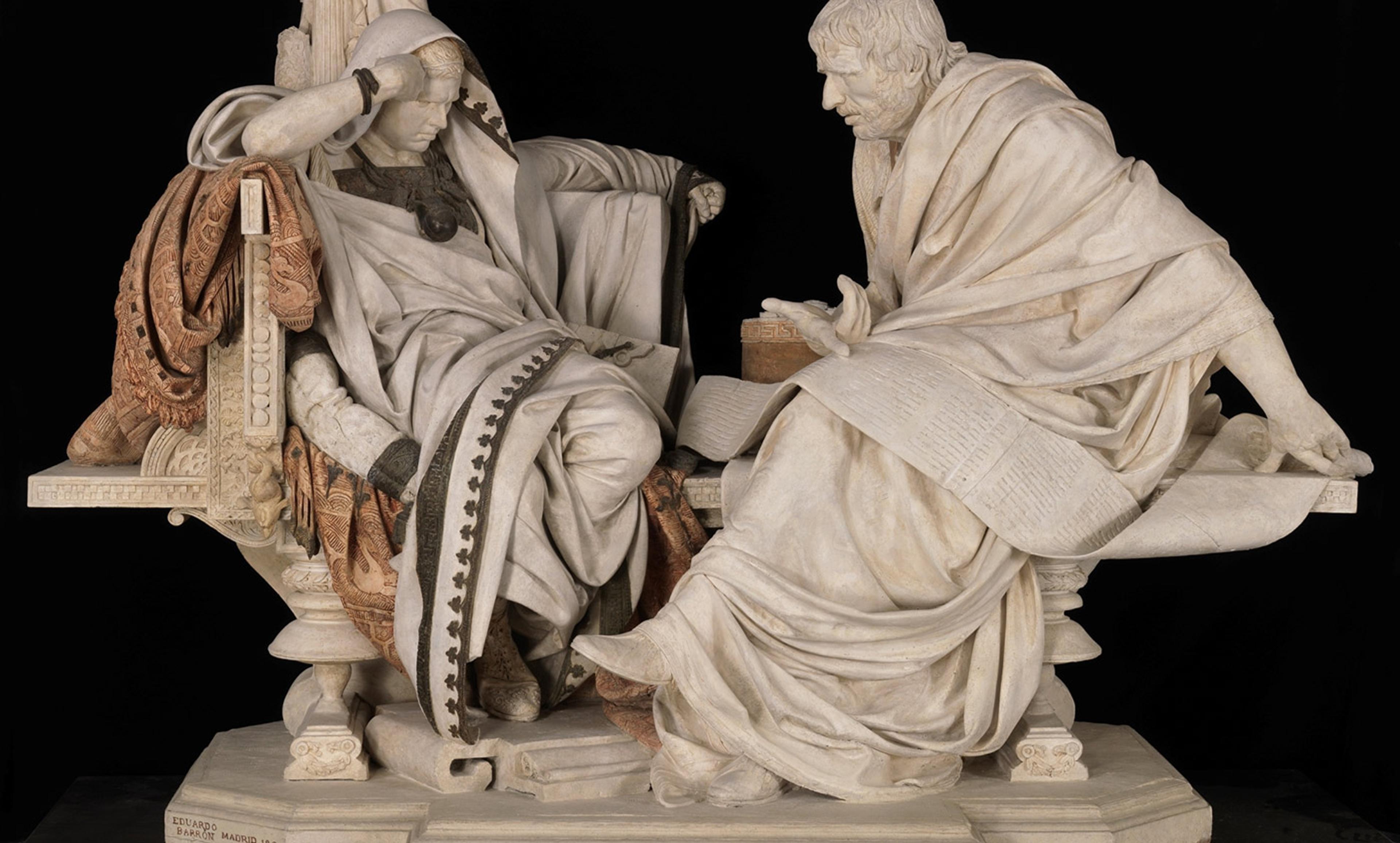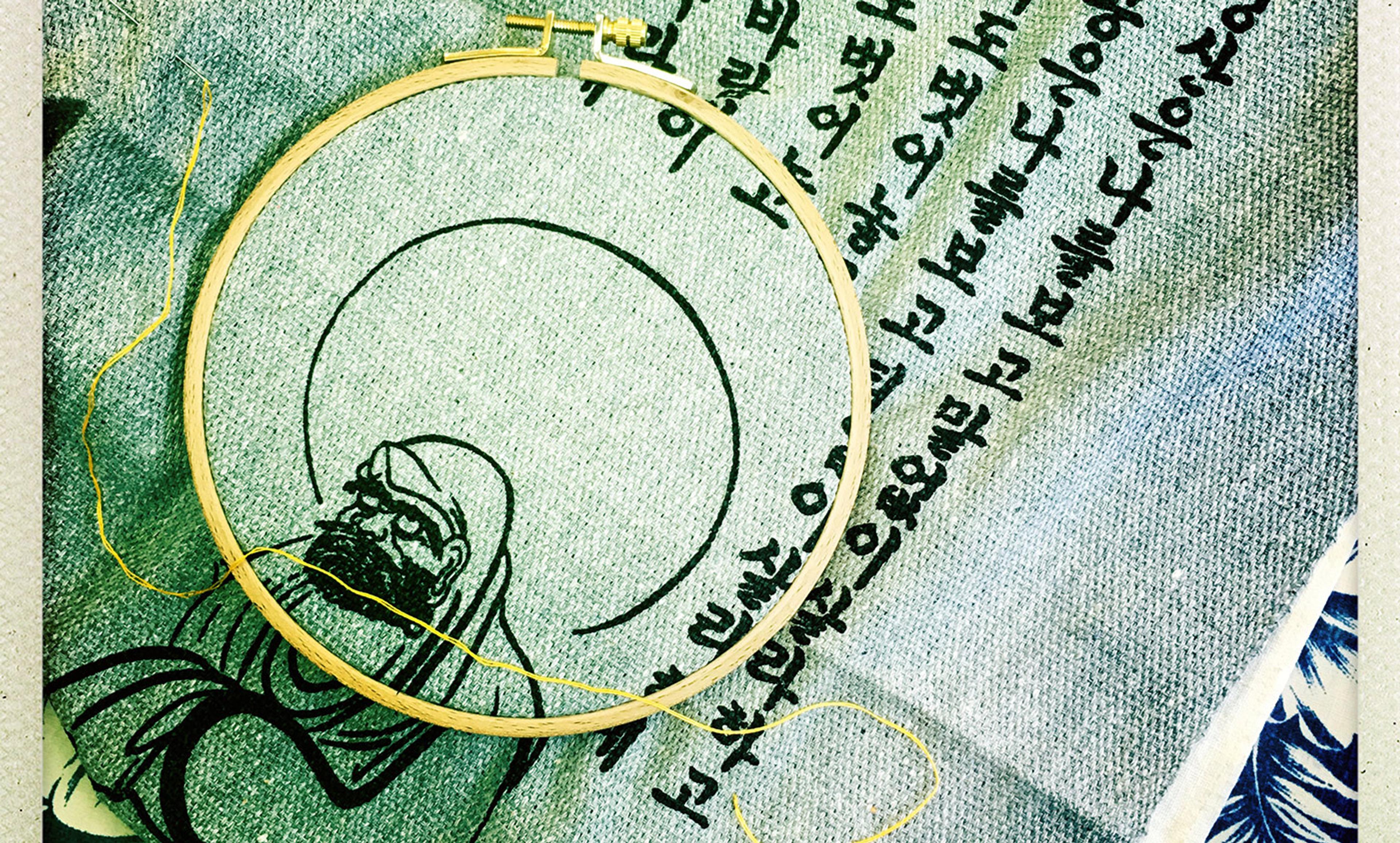Søren Kierkegaard at his high desk (1920) by Luplau Janssen. Courtesy Wikipedia
In memory of Stanley Cavell (1926-2018)
I came to philosophy bursting with things to say. Somewhere along the way, that changed. Not that I stopped talking, or, as time went on, writing. But the mood of it, the key in which it was pitched, moved. I came to feel answerable. And not just to myself or those I knew but to some broader public, some open, indefinite ‘you’. ‘Answer for yourself’ wove into ‘know thyself’.
How though does one register a key change in prose? If philosophy is bound, in part, to the feeling of being answerable, shouldn’t it have more of an epistolary feel? ‘Dear you, here is where I stand, for the time being… Yours, me.’ One ventures thoughts, accounts for them and awaits a reply, only to begin again: ‘Dear you, thank you for your response. So much (or very little) has changed since I received your letter…’
A move toward the epistolary seems right to me, at least for philosophy. Still a gadfly perhaps, but also working through having been stung, and with the vulnerability of doing so before, even for others. But how much philosophy has the feel of a letter? And when we philosophise, are we cognisant of our addressees and the varied situations in which they find us? The view from nowhere has been more or less exiled from epistemology. We know that we know in concrete, situated locales. But has philosophical writing kept pace and developed a feel for what to consider when pondering: how should I write?
Survey philosophy’s history, and the plot thickens. Philosophical writing is a varied affair. Some texts prioritise demonstration, arguing, for example, that ‘truth’ names a working touch between belief and the world. Others favour provocation, as when a dialogue concerning the nature of friendship concludes before a working definition is reached. If we want a definition, we need to generate our own, or ponder what a lack of one implies. Still other texts offer exemplification, as when Simone de Beauvoir in The Second Sex (1949) proves herself to be the agent-intellect that patriarchy insists she’s not. By confronting her historical fate, she shows us how wrong, how unjust that historical fate has been. And she shows us what patriarchy has kept us from.
Genre considerations intensify the question of what should organise philosophical writing: dialogue, treatise, aphorism, essay, professional article and monograph, fragment, autobiography. And if one’s sensibility is more inclusive, letters, manifestos and interviews also become possibilities. No genre is fully scripted, however, hence the need to also consider logical-rhetorical operations: modus ponens, irony, transcendental arguments, allegory, images, analogies, examples, quotations, translation, even voice, a distinctive way of being there and for the reader. So much seems to count when we answer for how we write.
Questions concerning writing sometimes arise when philosophers worry about accessibility and a broader readership. But the possibilities I have enumerated bear directly on thought itself. Writing generates discovery, and genre impacts rather than simply transfers ideas; so too logical-rhetorical operations. Francis Bacon was drawn to the aphorism because it freed observation from scholastic habits, whereas the professional article defers to its lingua franca. The treatise exhausts whatever might be said about a topic – call this the view from everywhere – whereas the essay accepts its partiality and tests its reach relative to topics such as friendship, feminine sexuality, even a fierce love for film. When writing becomes the question, more than outreach calls for consideration.
Here’s a start. How will my thought unfold through this genre and these logical-rhetorical operations? Where will the aphorism, essay or professional article take me, or an exchange of letters? And so too examples, open disagreements, quotation, the labour of translation, or irony for that matter? It is a celebrated trope of surprise and displacement. But a good deal of irony, at least when one turns to the ironist, facilitates self-preservation. It is the reader who is surprised by an encounter with some covert meaning while the author’s overt and covert meanings are fairly settled. (I thus wonder: what does irony keep safe?)
Questions regarding which possibilities to enact cannot be answered through critique, which, following Immanuel Kant, interrogates the character of our judgments and operative concepts, seeking rules that might govern their use. The discoveries that writing occasions are evidence that philosophy belongs too intimately to language to play charioteer to its steeds. Writing is a gamble and, when it’s honest, one faces unexpected results.
Facing a blank page, one might also ask: what relations will this establish with addressees? The polemic seeks converts rather than interlocutors, and at the expense of discovery. And even when an outright polemic is avoided, some schematise opponents rather than read them publicly and carefully, thereby preaching to the converted, which seems a misstep.
Unwilling to proceed dogmatically, one might favour provocation at the expense of doctrine, as some take Plato to do. But any provocation has its own commitments, beginning with the end toward which it provokes its readers. Socrates is one kind of interlocutor, Gaius Laelius quite another, and that is because Plato and Cicero approach education, the soul and their respective states differently. Strict distinctions between provocation and doctrine (or form and content, for that matter) are thus untenable.
Other operations also engage one’s addressees. Examples allow readers to review what’s on offer, something also made possible when meaningful disagreements are staged. (When authors never pause to imagine a disagreement, I feel claustrophobic and throw open a window.) And if one begins to acknowledge how varied one’s addressees could be, other habits become salient. Looking back at my citations, I know that I’ve written texts that suggest ‘whites only’ or ‘women need not apply’.
Texts and readers do not meet in a vacuum, however. I thus wonder: how does one also address prevailing contextual forces, from ethno-nationalisms to white supremacy to the commodification of higher education? It is tempting to imagine a text without footnotes, as if they were ornaments. But in a period so averse to the rigours of knowledge, and so ahistorical in its feel for the truths we have, why not underscore the contested history of a thought, if only to insist: thought is work, the results fragile, and there will be disagreements. Clarity poses another question, and a particular challenge for philosophy, which is not underwritten by experiments. Instead, its ‘results’ are won (or lost) in the presentation. Moreover, philosophical conclusions do not remain philosophical if freed from the path that led to them. ‘God exists’ says one thing in prayer and something else at the close of a proof. Experts often are asked to share their results without showing their work. But showing one’s work is very much the work of philosophy. Can one do so and reach beyond the academy?
Every reader of Plato knows that Socrates, by way of exemplification, is an image of philosophy, from his modes of interrogation to who is interrogated to his reminders that philosophy demands courage. And so too the dialogue itself – it models philosophy. But every text announces: here too is philosophy. The overall bearing of one’s writing thus merits scrutiny. Is it generous or hasty? Has it earned its ‘therefores’ or, after ripping opponents for nuanced failings, does it invoke the intuitively plausible? Does it acknowledge the full range of possible addressees or cloister itself within the narrow folds of the like-minded? Does it challenge its starting points or hide cut corners with jargon and massive generalisations?
Taking my cue from Ludwig Wittgenstein, I would say: philosophy no longer knows its way around writing. And what it does know – the professional article and monograph – is underwritten by conformity rather than philosophical reflection and commitment. Not for all. And many have led elsewhere by example. But on the whole, and thinking of the present moment, the writer’s life remains unexamined in the aspirational context of philosophy.
Looking into a garden of genres and logical-rhetorical operations, I have proposed four orienting questions. How will my thought unfold along these lines? What relationships will they establish with my varied addressees? Will my address be able to navigate the currents of our varied lives and be ‘equal to the moment’, as Walter Benjamin would ask? And finally, what, in the name of philosophy, does my text exemplify? Have I offered a compelling image? ‘Dear you, here is where I stand, for the time being… Yours, me.’






